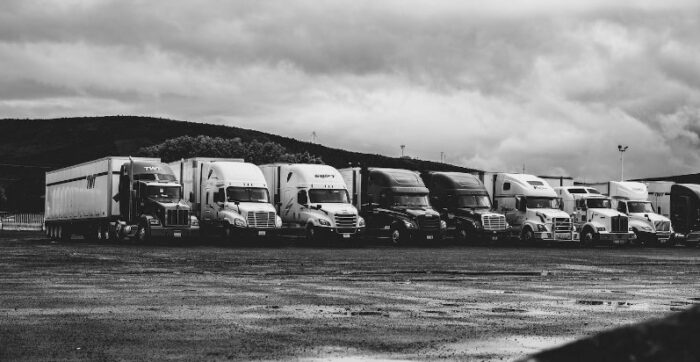Starting a trucking business in Florida can be a lucrative venture, especially when you’re familiar with the necessary steps. Driving and operating commercial trucks is an essential service for many businesses and knowing the industry will help you get on the road to success. So, if you’re interested in starting a trucking business in Florida, here are the essential pieces of paperwork and licenses you will need.

1. Using commercial truck insurance
When it comes to running a trucking business, having proper and adequate insurance coverage is essential. The kind of insurance you need depends on the type of service your company will offer. Generally speaking, almost all trucking businesses will need to carry liability insurance, cargo insurance, and physical damage coverage for their vehicles. Liability Insurance covers costs due to injury or property damage caused by an accident, while Cargo Insurance pays out if cargo is damaged or lost during transport. You can find rates for your commercial truck online and compare insurance prices from different companies to ensure you get the best deal. It’s important to factor in deductibles and the amount of coverage you need when you shop around.
2. Obtaining your operating authority
Another important step in starting a trucking business in Florida is obtaining an operating authority. An operating authority also referred to as a motor carrier number or MC-number is required by the Federal Motor Carrier Safety Administration (FMCSA) before you can start carrying cargo for hire. To apply for an MC number, you will need to complete and submit Form OP-1 with the FMCSA. Once your application has been approved, you’ll be issued a unique MC-Number that allows you to operate your business legally in all 50 states.
3. Registering for federal taxes
When it comes to running a trucking business in Florida, registering for federal taxes is essential. You must first get an Employer Identification Number (EIN) from the Internal Revenue Service (IRS) and use it to register your business with the IRS. It’s important to note that you will also need to apply for a Unified Carrier Registration (UCR) number, which is required under federal regulations before registering for federal taxes.
4. Applying for a motor vehicle dealer license
If you plan on hiring truck drivers or buying used vehicles, then you must obtain a dealer license in Florida. You can start by submitting an application form to the Florida Department of Highway Safety and Motor Vehicles, along with supporting documents such as proof of insurance coverage, tax returns, and financial statements. Once your application has been approved, you will be issued a license that allows you to buy and sell used trucks.
5. Getting your trucking business bonded
Next, all businesses that engage in the transportation of passengers and/or cargo within Florida must obtain a surety bond. A surety bond is essentially an agreement between three parties (the principal, the obligee, and the surety) that guarantees payment to those affected if damages are inflicted by the principal’s negligence. To get a surety bond, you will need to contact a licensed bonding company or insurance provider and provide proof of financial responsibility such as bank statements or other financial documents.
6. Acquiring the proper truck driver’s licenses and certifications
Finally, to operate a commercial trucking business in Florida, you must make sure that all your drivers have the proper licenses and certifications. This includes obtaining a Commercial Driver’s License (CDL), which allows them to legally drive commercial motor vehicles in the state. This helps to ensure that your drivers are qualified and knowledgeable in the safe operation of commercial trucks. Additionally, you’ll want to make sure that they also have up-to-date certifications such as hazardous materials and tanker endorsements.
Why is it important to take these steps?
Having all the necessary documents, licenses, and certifications in place is essential when it comes to starting a trucking business in Florida. Without these important steps, you could be at risk of having your business shut down or fined by state and federal agencies. It’s also important to remember that the regulations governing commercial transportation can change periodically, so it’s important to stay up-to-date on any changes to remain compliant.
It’s also worth noting that the steps outlined above represent only a basic overview of the process and that you may need to take additional steps, such as obtaining additional permits or insurance coverage, to legally operate a commercial trucking business in Florida.
By following these steps, you can ensure that your trucking business in Florida is legally up and running. From obtaining the necessary permits to registering for taxes, there are a lot of moving pieces involved in starting a trucking business. However, with the right documentation and licenses in hand, you’ll be ready to hit the road and start earning money. Good luck!











Leave a Reply